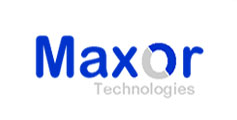|
Overview
Remote access enables “extended” and “open”
enterprises to make efficient use of people and
resources wherever they are located at home, on the
road, using public PCs, or drop-in business centers
in hotels. However, opening the network to access
from anywhere introduces security concerns. For that
reason, sensitive information on systems used for
remote access should be encrypted using a system
that integrates seamlessly into normal application
use. Encryption systems are currently available that
enable the user to operate normally, not requiring
manual or individual encryption/decryption of files.
Remote access VPNs. Internet-based remote access
provides tremendous flexibility and high bandwidth.
Two approaches are common:
•
VPNs based on IPsec, with IPsec client software
loaded on the user’s access device.
•
SSL VPNs with SSL security, that uses the SSL
capability built into standard Web browsers and
requires no other client software.
IPsec-based VPNs: IPsec is a network-layer approach
that can be used across applications. For example,
an IPsec-based VPN connection can be used to access
e-mail, HR self-serve applications on the intranet,
and browse the network. An IPsec “client” (the
user-interface software), must be installed on the
access device—PC, PDA, handheld computer, etc. The
VPN client authenticates the user, verifies the
integrity of the user’s computer system, and
establishes a secure link (“ tunnel”) to the
enterprise. The VPN client ensures that the remote
system is secure even during session setup, where
exchange of authentication information is encrypted.
SSL (Secure Sockets Layer) protocol uses encryption
and authentication to secure communications between
Web browsers and Web servers at the application
layer. Originally developed for electronic commerce,
SSL is built into most browsers, Web servers, and
e-mail applications to provide data encryption,
server authentication, message integrity, and
optional client authentication between users and
their applications one application at a time. By
putting a Web front-end on a networked application,
secure access to the application can be made through
SSL from any Web-enabled device, anywhere. So
enterprises are now using SSL VPNs to extend the
reach of Web-based applications to users who need
only limited access to such applications.
MAXOR TECHNOLOGIES through its partners offers both
types of VPNs: IPsec and SSL, and support for both
in several platforms, in order to provide whatever
level of VPN support enterprise customers choose.
MAXOR TECHNOLOGIES Networks has partnered with the
following vendors to offer best of breed Remote
Access security solutions.
|
